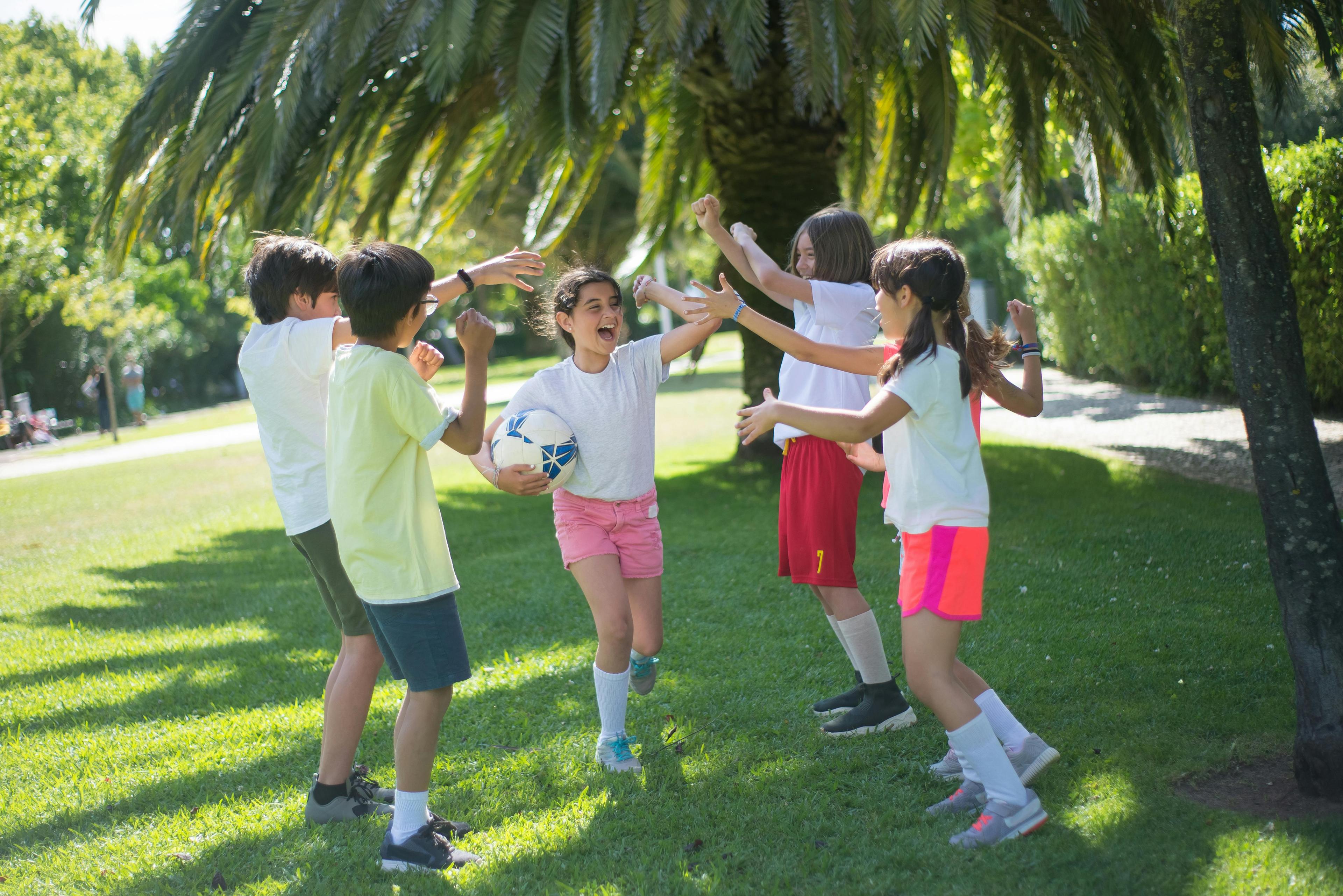


How can I help my children develop self-esteem?
9 March 2024
We all want our kids to be confident and happy. But sometimes, children develop low self-esteem. Helping children develop healthy self-esteem is fundamental to their overall well-being and success in life. Self-esteem influences how children perceive themselves and how they interact with others. It helps children understand the need to face challenges. It helps children to feel valued.
As parents, caregivers, or educators, fostering an environment that nurtures positive self-worth is really important. We’re in a position to help pave the right route for children. This can be achieved through a variety of strategies, including encouraging participation in activities that promote self-confidence and using resources like Hoop to discover healthy activities for kids.
You, as a Parent
The first thing to remember, is that kids copy parents. If you have low self-esteem, self-confidence, or self-worth, take steps now to address it. Seek help, mentoring, counselling or life-coaching. Address your weaknesses, so you can demonstrate your strength and resilience, and be an example to your child. Be kind to yourself.
Love and Support
Provide love and support to your children to help them feel valued. Cuddles go a long way. Having stability in your family life, or home life, can be important as part of the support network. Having close family members around can also be highly beneficial to kids, especially their grandparents if you are lucky enough to have some around.
Set Realistic Expectations and Celebrate Efforts
Setting achievable goals and celebrating the effort put into tasks, not just the outcomes, encourages a growth mindset. It teaches children that their worth is not tied to perfection but they are encouraged to try hard. We teach our kids to try to be the best they can be. We don’t want our kids to be perfectionists, or have unrealistic expectations of themselves. My wife and I look at the character strengths of our kids. If they did well that day, we ask them, which character strength did you use. They’ll say bravery, confidence, kindness, and others. This helps praise the quality not the outcome.
Encourage Independence and Responsibility
Allowing children to make choices and take responsibility for age-appropriate tasks boosts their sense of autonomy and self-esteem. As parents, we typically want to protect and nurture, but we need to be careful not to overcrowd and restrict them. Children like to make choices too. We don’t want to make all the decisions for them, letting them make decisions can be useful. This morning my son George asked if he should wear a coat to school or not. I said, it’s up to you George, you can decide. Although it is March, and fairly chilly out, he made his own decision not to wear a coat, and I was happy with his decision. I encourage both my children to make their own decisions where possible.
Encourage Expression
I always encourage my children to express themselves openly, fostering an environment where they feel safe and valued for their thoughts and feelings. They have their own ideas about everything, and in many cases, think they know best. I like that. I encourage them to speak up, to make good points, and to stand up for their beliefs.
Engage in Positive Communication
I’d always thought that being positive with communication will help kids, using words of encouragement and affirmation. Highlight strengths and achievements is a good approach, and I try (although not always successfully) to be positively critical rather than negatively critical. This approach helps children view challenges as opportunities for growth rather than threats to their self-worth.
While positive communication is important, of course, we’ve all heard of examples where negative communication can fuel the drive to succeed. I’ve recently been reading Steven Bartlett’s excellent book “The Diary of a CEO” and in it, he says that when he dropped out of university, his mother told him not to speak to her again until he had signed back up to university. She told him he could not stick to anything, and was the reason why he was expelled from school. These harsh words, and negative communication, actually seemed to ignite a fire and of course Steven Bartlett is now phenomenally successful.
The Role of Activities in Boosting Self-Esteem
Activities play a pivotal role in the development of children's self-esteem. When children engage in activities they enjoy, they are more likely to feel competent and confident. These activities provide opportunities for children to learn new skills, express themselves, and have loads of fun. They can also help achieve goals, which are essential components of building self-esteem. Sports, arts, crafts, or any activities are super-useful. This is why Hoop is so important. We know that getting kids active and engaging socially with others is beneficially for mental health and self-esteem. Hoop provides a listing of thousands of healthy events for kids.
Participate in Activities Together
Participating in activities together can significantly boost a child's self-esteem. Parents and family events can provide valuable bonding time. Our kids seem to love doing things with us. We take them walking, climbing, sailing, skiing, hiking, park runs, and more. We do it together. It’s great fun, and we see our kids developing in maturity and confidence, promoting being well-rounded kids. Engaging in diverse activities helps them discover what they enjoy and are good at, and helps them to feel like they are achieving.
The activities listed on Hoop often emphasise not just physical health but emotional and social well-being, too. From sports and martial arts to art classes and coding workshops, these activities can cater to diverse interests, encouraging children to engage with their peers. They can help kids to learn new skills, and, most importantly, have fun. Engaging in these activities boosts children’s confidence in their abilities and helps them form positive connections with others.
